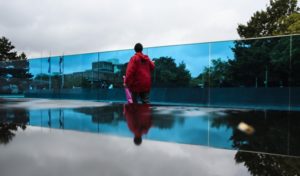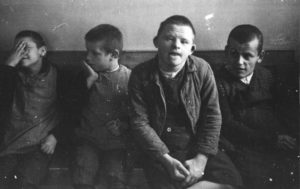By Catia Malaquias
The 60 Minutes Report on Non-Invasive Prenatal Testing that aired on Channel 9 has predictably sparked debate on the worth of human life – albeit in the context of the unborn – but by reference to the perceived worth of the lives of disabled people.
 The politics of “lifters and leaners” – “the productive and the burdensome” – lay at the core of Nazi propaganda justifying its involuntary euthansia program for disabled people – particularly people with intellectually disability – of which babies, children and adults with Down syndome were a key target.
The politics of “lifters and leaners” – “the productive and the burdensome” – lay at the core of Nazi propaganda justifying its involuntary euthansia program for disabled people – particularly people with intellectually disability – of which babies, children and adults with Down syndome were a key target.
The “T4 program” – as it came to be known – was effectively a “rehearsal” on disabled people for the broader Holocaust that was to come – by the end of the Second World War approximately 300,000 babies, children and adults with disability from Germany and the countries it occupied would be killed by lethal injection and gassing.

Berlin Memorial to Disabled Victims of Nazi Regime
Although people with disability were the first minority to be systematically killed by the Nazis – they were the last to be formally recognised in 2014 – well after memorials for the Jewish, gay and Roma communities – and few involved in the program were ever prosecuted.
At the opening of the T4 memorial in Berlin, the German Minister for Culture said:
“Every human life is worth living: That is the message sent out from this site. … The T4 memorial confronts us today with the harrowing Nazi ideology of presuming life can be measured by ‘usefulness’.”

Heilanstalt Schönbrunn bei Dachau. – SS-Foto, 16.02.1934
A society in which those we perceive as strong prejudge those we perceive as weak is a society which lacks respect for itself – respect for its own biological, social and economic diversity. It sends a message of exclusion of those pushed to the biological, social and economic margin – rather than one of inclusion.
How we respond to our most marginalised citizens speaks more about our society than how much is achieved by our “strongest” – our cultural attitude is the mortar that holds our society together – the more inclusionary our attitude, the stronger our society will be.
[Cover photo © Nathan Anderson]
Thank you for visiting our website. You can also keep up with our mission for #adinclusion by liking our Facebook page or following us on Twitter @StartingWJulius
